Tehran Advises Taliban Not To Dodge Intl. Responsibilities
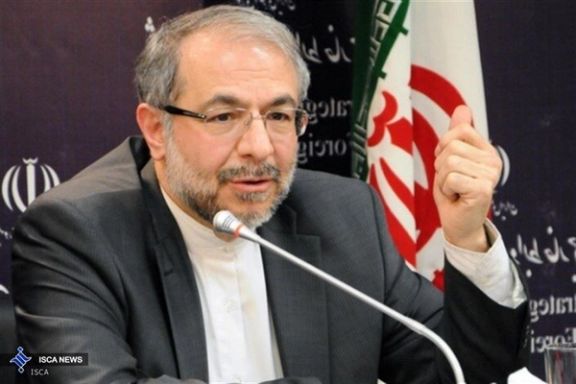
Iran’s assistant FM indirectly criticized the remarks made by the Taliban's Foreign Minister regarding the establishment of an inclusive government in Afghanistan.

Iran’s assistant FM indirectly criticized the remarks made by the Taliban's Foreign Minister regarding the establishment of an inclusive government in Afghanistan.
Rasoul Mousavi emphasized the importance of "peace, stability, security, and sustainable development" in relation to the formation of a comprehensive government in Afghanistan as well as stating that "personalization" cannot exempt the Taliban from international responsibilities.
He cited United Nations Security Council resolutions 2513 and 2593, as well as consensus meetings among neighboring countries including Pakistan, China, Uzbekistan, and Iran
Mousavi spoke following criticism from Amir Khan Muttaqi, the Taliban's Foreign Minister, against countries advocating for an inclusive government in Afghanistan. Although no specific reference was made to Iran, it is widely assumed that his remarks were aimed at the Islamic Republic. "Our prisons do not have as many inmates as you execute,” he said.
In recent years, Iran has faced allegations of making opponents disappear and executing them. "In your country, thousands have disappeared, yet nobody dares to ask about it," Muttaqi.
Hossein Amir-Abdollahian, the Foreign Minister of the Islamic Republic, had previously stated that the Taliban is "part of the reality of Afghanistan, not all of it." He emphasized that Iran does not recognize the Taliban government until the formation of an all-inclusive government and expressed dissatisfaction with the Taliban's policies regarding women's education.
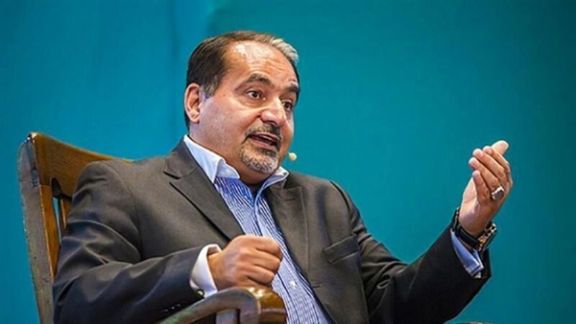
Lawmakers have written to Gen Anthony J. Cotton to probe why an Iranian regime insider was invited as a key speaker to the recent STRATCOM Deterrence Symposium.
The chair of the US House Armed Services Committee Mike Rogers (R-Ala.), and the ranking member of the Senate Armed Services Committee, Sen Roger Wicker (R- Miss.) have asked Gen. Cotton for details about those involved in the decision to invite Hussein Mousavian, a former high-ranking Iranian official. Mousavian who is a faculty member at Princeton has been praised in the past by former Iranian foreign minister Javad Zarif about his role in advocating for the policies of the regime in the United States.
The affair in mid-August that was revealed earlier this week led to an uproar on social media. Former US officials, analysts and Iranian activists condemned the move by the US military to invite Mousavian. Some quipped that perhaps Vladimir Putin and other US adversaries should also be considered as speakers as Pentagon events.
The lawmakers pointed out in their letter that Mousavian is “A propagandist of the regime since 1980, Mousavian served as the Iranian regime’s Ambassador to Germany in 1992 when the regime’s intelligence operatives assassinated four Iranian dissidents in Berlin. In response, German authorities forced Mousavian to leave the country along with several other Iranian “diplomats” and intelligence operatives.“
Mousavian made headlines last year for bragging about revenge against American officials over the targeted killing of IRGC's Quds Commander Qasem Soleimani. In January 2022, his remarks in a documentary made in Iran to mark Qassem Soleimani’s death anniversary led to controversy when he gloated about how Iran’s threat to avenge Soleimani killing frightened the wife of Brian Hook, Washington’s special envoy for Iran at the time. “An American told me that Brian Hook’s wife had not slept for several days and that she was shaking and crying. That’s how afraid they were” Mousavian said gleefully in the documentary.
A STRATCOM spokesman later told the Washington Free Beacon that "We were aware of Mr. Mousavian’s previous position within the Iranian government and believe that... we would have benefited from that insight into an opposing viewpoint."
The lawmakers sharply criticized the move to invite Mousavian and said, “While we appreciate the importance of improving our understanding of adversary perspectives and motivations in formulating deterrence policies, providing Mousavian with an officially sanctioned U.S. Government platform for spreading historical falsehoods and Iranian regime propaganda is profoundly ill-advised.“
They went on to ask Gen. Cotton to provide “the names and positions of all officials responsible for approving the invitation to Mousavian,” and asked if STRATCOM provided “compensation for transportation, lodging or a per diem to Mr. Mousavian? Was Mousavian provided with an honorarium? If so, how much?“
Many critics had raised questions about whether US taxpayer funds were used to pay an Iranian regime advocate to appear in the STRATCOM event.
Earlier, other lawmakers had already voiced frustration over the incident. "Mousavian helped lead the murderous Iranian regime’s efforts to obtain nuclear weapons so it could threaten the United States and our allies with annihilation," said Rep. Jim Banks (R-IN), a member of the House Armed Services Committee. "Now he’s in semi-retirement at Princeton as a full-time propagandist for the IRGC. Inviting him to spread lies at a US military seminar is insanity."
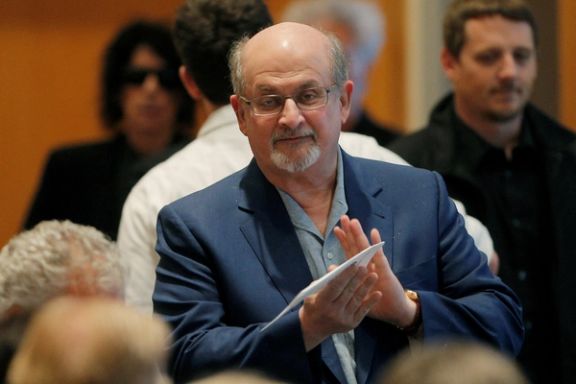
The investigation into last year’s nearly fatal attack on Salman Rushdie has expanded to explore potential international involvement, according to a US district attorney.
Jason Schmidt, the US district attorney overseeing the case, revealed a separate inquiry led by the US federal government, specifically the US Attorney's Office into the case of Hadi Matar with a focus on Iran. Matar, a 25-year-old man accused of stabbing Rushdie multiple times during the writer’s appearance at a summer cultural festival last August is now accused of having possible connections to foreign entities.
“There are some areas that we have to sort of confine ourselves to the four corners of the charges that we've asserted, which is essentially an attempted murder in the second-degree charge. That's our top count,” said Schmidt.
This scrutiny is linked to Iran's historical involvement due to Ayatollah Khomeini's 1989 fatwa against Rushdie because of what he asserted were sacrilegious sections regarding Islam in Rushdie's novel, "The Satanic Verses."
Iranian religious groups have also offered rewards for Rushdie, with such offers extending as recently as last year.
While Matar's assault on Rushdie was initially seen as an individual act, concerns have arisen regarding foreign support, especially given Matar's time in Lebanon and his possession of a counterfeit Hezbollah-related ID.
The investigation's complexity extends beyond local jurisdiction, involving national security and diplomacy amid ongoing negotiations with Iran.
Experts suggest that Matar was possibly influenced by Hezbollah during his time in Lebanon and that this may have played a role in his alleged attack. Iran has denied direct involvement but expressed support for the attack.
The focus of the investigation remains on Matar, with the US State Department imposing sanctions on an Iranian organization linked to bounties on Rushdie.
Tensions between the US and Iran have escalated in recent years, marked by events such as the assassination of General Qasem Soleimani and alleged plots against US officials.
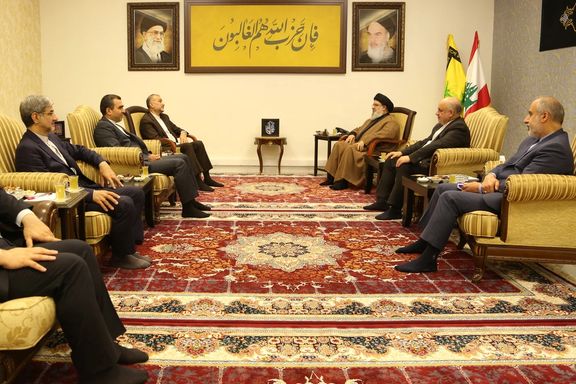
Iran’s Foreign Minister Hossein Amir-Abdollahian engaged in discussions with Hassan Nasrallah, the Secretary-General of Hezbollah in Lebanon.
Media outlets with close ties to Hezbollah have not provided additional information about the nature and outcomes of the meeting.
Amir-Abdollahian also held discussions with the Speaker of Lebanon's Parliament Nabih Berri.
The visit to Lebanon follows a two-day visit to Syria, where Amir-Abdollahian held talks with President Bashar al-Assad to discuss the importance of strengthening regional ties. Whilst in Damascus, Amir-Abdollahian also commended the recent developments in Iran-Saudi relations, emphasizing their “mutual benefits and regional significance”.
The FM’s trip to both Syria and Lebanon coincides with ongoing reports of Israeli attacks on quasi-military groups affiliated with the Islamic Republic in Syria.
During a press conference, Amir-Abdollahian called for the withdrawal of US troops from the region and criticized Israeli airstrikes targeting sites in Syria, warning that such actions would inevitably invite retaliatory measures. “No party is capable of blocking historic transportation routes,” he said.
Israel has carried out numerous airstrikes on targets in government-controlled parts of Syria in recent years, often targeting Iranian-backed armed groups and concentrations of Iranian weaponry transferred to Syria.
Tehran has been a staunch supporter of Bashar al-Assad's government since the eruption of the Syrian civil war in 2011. Iran has provided both military and financial backing, deploying its own military personnel, Lebanese Hezbollah, and militias from Afghanistan, Iraq, and Pakistan to bolster President Assad's forces in their battle against opposition groups.
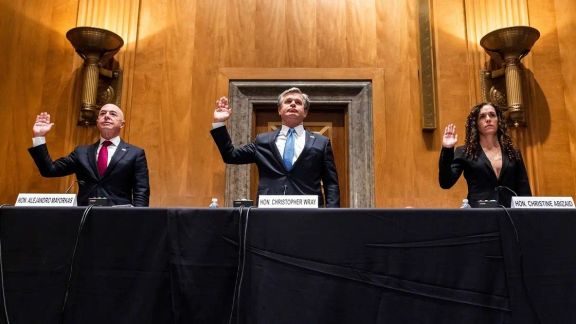
As information about secret talks with Tehran remain scarce, US lawmakers demand to know how American officials are being protected against Iran’s threats.
Reps. Mark Green (R., Tenn.), the House Homeland Security chair, and August Pfluger (R., Texas) have written to Homeland Security Secretary Alejandro Mayorkas, FBI Director Christopher Wray and Director of National Counterterrorism Center Christine Abizaid, “to request additional information about the persistent threats posed by Iran’s campaign to direct operations against U.S. persons or other targets in the U.S. homeland.”
Since the targeted killing of Qasem Soleimani, Iran’s top military and intelligence operator in the Middle East, in January 2020, the Iranian regime has repeatedly threatened revenge of former Trump administration officials.
The Justice Department revealed on August 10, 2022, that an operative of Iran’s Revolutionary Guard tried to hire a hitman in the US to kill former National Security Adviser John Bolton.
Bolton told Iran International Television at the time that he was not surprised an indictment was unsealed because he was kept informed “in general terms until late in 2021 when it was determined I would again get secret service protection.”
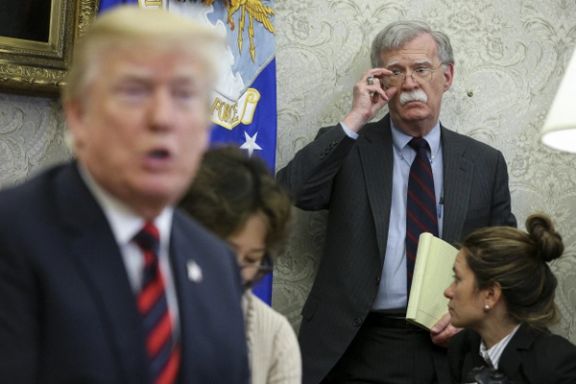
Congressmen Green and Pfluger citing Bolton’s case also mentioned threats against former Secretary of State Mike Pompeo and others. “Further, credible threats by Iran have continued to persist against Pompeo as well as his former top aide, Brian Hook, who served as special representative for Iran during the prior administration.”
The letter cited Iran’s militant proxy the Hezbollah, which is designated as a Foreign Terrorist Organization by the United States, and its global reach. It cited testimony by FBI Director Wray who told Congress that the Lebanese Shiite group has sent operatives “to build terrorist infrastructure worldwide. The arrests of individuals in the United States allegedly linked to Hizballah’s main overseas terrorist arm, and their intelligence collection and procurement efforts, demonstrate Hizballah’s interest in long-term contingency planning activities here in the Homeland.”
The lawmakers expressed concern that the Biden administration continues to engage with Iran for a nuclear deal, while these activities continue.
“To assist the Committee’s examination of the threats posed by Iran in the U.S. homeland, we request that DHS, the FBI, and NCTC provide Committee staff a classified briefing no later than September 14, 2023 about these ongoing threats, to include but not limited to, information about the number of active plots by Iran or its proxies against U.S. persons living in the United States, as well as information about your respective agencies’ coordination efforts for threat intelligence to counter Iran’s activities,” the letter said.
In August the administration agreed to allow $6 billion of frozen Iranian funds in South Korea to be unblocked, after allowing $2.7 billion to be released from Iraq in June. Although the reason for these steps is presented as a hostage release deal, numerous reports have indicated the possible existence of more secret arrangements.
Iran has reportedly reduced the pace of its uranium enrichment, while the Biden administration look the other way as Tehran boosts its oil exports to China in violation of US sanctions. Iran’s oil exports in August reached nearly 2 million barrels per day, regaining almost all its lost market since the Trump administration withdrew from the JCPOA nuclear agreement and imposed sanctions in 2018.
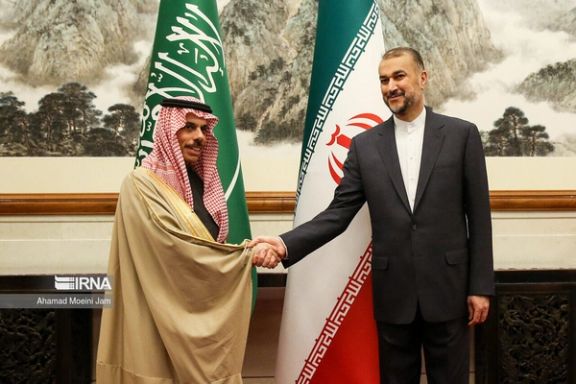
Iran's foreign minister has spoken of the importance of improved Iran-Saudi relations during an official meeting with Syrian President Bashar al-Assad.
Hossein Amir-Abdollahian met the Syrian leader, a close ally to Iran, on Thursday during a two-day visit to the country. The Iranian FM praised the thawing of Iran-Saudi relations as mutually beneficial and regionally significant.
The minister also extended an invitation on behalf of President Ebrahim Raisi, for Assad to visit Tehran whilst expressing satisfaction at the renewed engagement of Syria within the Arab League and the enhancement of Syrian-Arab relations.
This takes place against the backdrop of ongoing reports concerning attacks attributed to Israel on positions affiliated with quasi-military groups linked to the Islamic Republic within Syrian territory.
After Damascus, Amir-Abdollahian will travel to Lebanon for discussions with the leadership of Hezbollah, a proxy militant group associated with Iran.
Amid speculation about potential moves by US forces in Iraq and Syria to address vulnerabilities along the Syrian-Iraqi border, which enables Tehran to transport weapons and fighters through Iraq into Syria, Amir-Abdollahian responded to questions during a press conference by urging US troops to depart from the region. He confidently said, "No party is capable of blocking historic transportation routes."
Furthermore, Amir-Abdollahian slammed Israeli airstrikes targeting sites in Syria and cautioned that such actions would inevitably invite retaliation.






